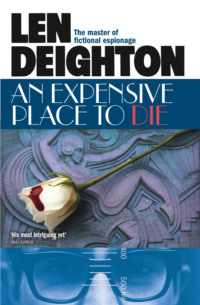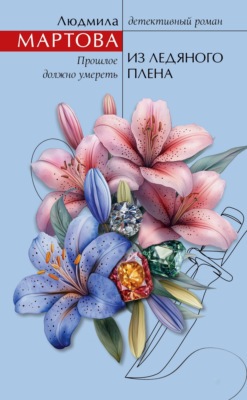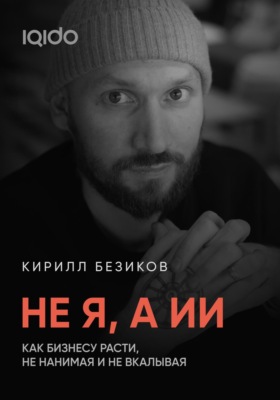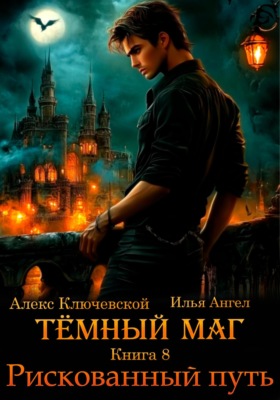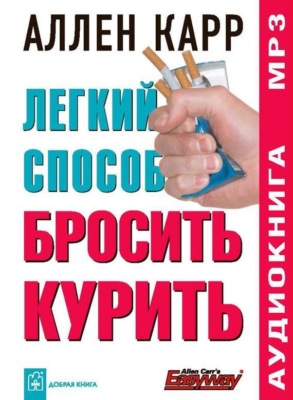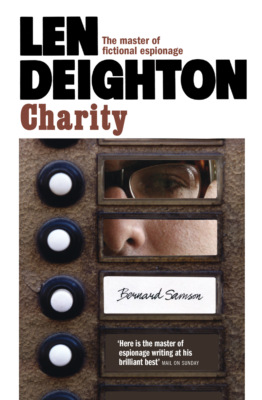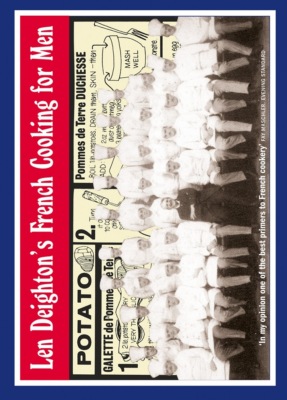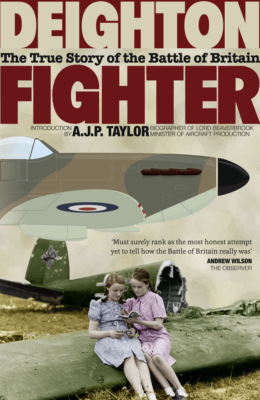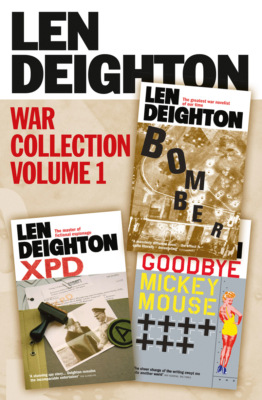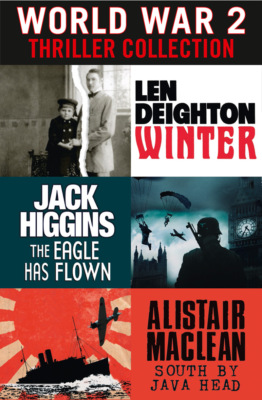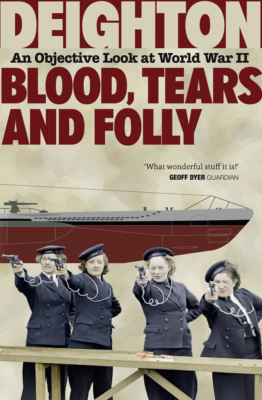Loe raamatut: «An Expensive Place to Die»
LEN DEIGHTON
An Expensive Place to Die

Copyright
Published by HarperCollinsPublishers Ltd 1 London Bridge Street London SE1 9GF
First published in Great Britain by
Jonathan Cape Ltd in 1967
Copyright © Len Deighton 1967
Introduction copyright © Pluriform Publishing Company BV 2012
Cover designer’s note © Arnold Schwartzman 2012
The poem ‘May’ quoted here is from Twentieth Century Chinese Poetry, translated by Kai-yu Hsu (copyright © Kai-yu Hsu 1963) and reprinted by permission of Doubleday & Co. Inc., New York
Len Deighton asserts the moral right to be identified as the author of this work
A catalogue record for this book is available from the British Library
This novel is entirely a work of fiction. The names, characters and incidents portrayed in it are the work of the author’s imagination. Any resemblance to actual persons, living or dead, events or localities is entirely coincidental.
All rights reserved under International Copyright Conventions. By payment of the required fees, you have been granted the non-exclusive, non-transferable right to access and read the text of this e-book on-screen. No part of this text may be reproduced, transmitted, down-loaded, decompiled, reverse engineered, or stored in or introduced into any information storage and retrieval system, in any form or by any means, whether electronic or mechanical, now known or hereinafter invented, without the express written permission of HarperCollins e-books.
HarperCollinsPublishers has made every reasonable effort to ensure that any picture content and written content in this ebook has been included or removed in accordance with the contractual and technological constraints in operation at the time of publication.
Source ISBN: 9780007448349
Ebook Edition © June 2012 ISBN: 9780007458387
Version: 2017-05-23
Epigraph
Do not disturb the President of the Republic
except in the case of world war.
Instructions for night duty officers
at the Élysée Palace
You should never beat a woman,
not even with a flower.
The Prophet Mohammed
Dying in Paris is a terribly expensive
business for a foreigner.
Oscar Wilde
Table of Contents
Cover
Title Page
Copyright
Epigraph
Introduction
Chapter 1
Chapter 2
Chapter 3
Chapter 4
Chapter 5
Chapter 6
Chapter 7
Chapter 8
Chapter 9
Chapter 10
Chapter 11
Chapter 12
Chapter 13
Chapter 14
Chapter 15
Chapter 16
Chapter 17
Chapter 18
Chapter 19
Chapter 20
Chapter 21
Chapter 22
Chapter 23
Chapter 24
Chapter 25
Chapter 26
Chapter 27
Chapter 28
Chapter 29
Chapter 30
Chapter 31
Chapter 32
Chapter 33
Chapter 34
Chapter 35
Chapter 36
Chapter 37
Chapter 38
Chapter 39
Chapter 40
Keep Reading
Footnotes
About the Author
Cover designer’s note
Also by the Author
About the Publisher
Introduction
France beckons to every lonely misfit, and most novelists answer to that description at some time or another. Many authors have responded to France’s call with enthusiasm; notably during those years between the two world wars when the exchange rates favoured those with US dollars, and Prohibition at home made the noble vintages of France irresistible. But most of those writers were prudent. Writing primarily for English-speaking readers they wrote stories about English-speaking people. Most of those stories were vaguely autobiographical ones about the wealthy English and American visitors with whom the writers fraternized. France provided the mountains and the Mediterranean but the French people in the stories were mostly waiters.
Many of the resulting books were dazzling; some became classics but many of the stories could have taken place in Gloucestershire or Long Island. This was a practical restraint, but writing about France without depicting French people (however inaccurate or untypical the characterizations might be) is like eating a chocolate bar without first removing the wrapper. I am not prudent. I wanted to tell my story with French men and women playing major roles.
It was this need to bring French people into An Expensive Place to Die that led to my including some chapters in the third person. This gave me a chance to show their thoughts and motivation and an opportunity to have action beyond that of the first person. This was not a planned device, it came naturally to the telling of the story and no one criticized it.
No doubt every writer has their own method of writing and this is something that writers enjoy talking about. Most important is whether to write after making a careful plan or to simply invent each new chapter as it comes. Many writers have told me that they don’t know what the end of their books will be when they are writing the first page. The argument against this is the uncertainty that comes of consigning the plot to the vagaries of the writer’s day-to-day temperament. My experience is that there comes a stage in the planning when it is best to start writing and leave some room to develop your characters. Whatever method is chosen, some element of your story is likely to assume an importance beyond your plan. In XPD a character named Charles Stein became that sort of element. He wrestled to take control of my story and nearly did so. Looking back on it, the book was much enhanced by him. For An Expensive Place to Die it was Paris that took on an unplanned importance, and this gives the book an atmosphere rather different to all the other books I have written.
I was a teenager when I first went to Paris. It was not ‘warm and gay’ as the Hammerstein lyric recalled; rather it was ‘old and grey’ as in the lyric that Sinatra was crooning at that time. The war was scarcely ended and I stepped from the train into a dense aroma of Gauloises and garlic. I found myself alone and without contacts standing on the noisy concourse of the Gare du Nord. Packed tight, there were beggars, whores and black-market traders all plying their trades with appropriate subtlety. Heavily burdened infantrymen displayed the silence of the weary while polished and blancoed military police patrols sifted continually through the multitude. My parents had only agreed to this expedition because someone was to meet me and take care of me. That friend was posted away at short notice and I was left to my own devices. Someone put a card into my hand and I plodded along, suitcase in hand, to Place Blanche, a seedy district adjacent to Montmartre. Using the advertisement card, I found a tiny attic room in an old, cheap, threadbare hotel near the Moulin Rouge.
It was all exactly like the little room in which Jean Gabin fought off the flics in that wonderful old film Le Jour se Lêve. All that night I waited for the ‘daybreak’ as I had waited for Santa Claus to arrive on so many Christmas mornings. When light came through the shabby curtains I looked out of the window at the roofs of Paris. This remains one of the most memorable moments of my long, eventful and happy life. I was a teenager, and entirely unsupervised, with this great foreign city laid at my feet. I could scarcely believe my good fortune. I tramped around the city; stood alone at the tomb of Napoleon and inspected the burned-out German tanks that the French were in no hurry to clear away. The fighting had ended but the smell of war lingered. I walked all the way to the Etoile and then back across town to the Place Bastille, only to be sadly disappointed that the grim old prison was no longer there. The Folies Bergère is just for tourists, the concierge at the hotel told me; the Concert Mayol is far more risqué and the girls far, far more naked. I went to the Concert Mayol. I went to the Louvre, where they also had naked girls, to Notre Dame and to that most spectacular of Paris sights – the Sainte Chapelle. I climbed the steep, slippery, and seemingly unending iron steps to get to the top of the Eiffel Tower, and was spattered with red lead primer paint as I passed workers restoring it to good condition.
Although I was in civilian clothes, my youth and London accent caused me to be mistaken for a soldier and I capitalized on this by eating in the military facilities such as the Montgomery Club near the Place de la Concorde. In some places I was eyed with suspicion and twice I was detained on suspicion of being an army deserter. I soon made sure I carried my passport everywhere I went. I must have walked many miles during that time in Paris and by saving my money I was able to afford a lunch at the renowned Tour d’Argent, which had resumed its production of the famous roast duck, prepared at the tableside in a massive silver press.
After that first visit, I returned to Paris many times. For short periods I lived there in varying degrees of comfort. My wife’s parents enjoyed a lovely home there and we relished their hospitality. The idea of writing about this Paris I discovered never went away. I knew several fashion photographers and in the early 1960s I started notes for a book using as a background the Paris collections. I continued my lengthy stay there but I didn’t continue with this project. I also abandoned a story about a symphony orchestra because I didn’t know enough about music and musicians. Finally I met a Paris policeman who wanted to practise his English and I knew I was going to write An Expensive Place to Die.
Together with my family I have lived in many countries, but I never became one of the dedicated exiles who cluster in the sunshine and snow. Perhaps the France I depict in An Expensive Place to Die is not a land you recognize. Yet this is what France, or more particularly Paris, seemed like back in the sixties when I lived there and wrote this book.
It was the chance introduction to a detective serving with the police judiciaire that gave me the chance to write about the underside of Paris. This friend served in the brigade mondaine, which is the quaint title the French give to what in London was called the vice squad. My policeman knew everything and everyone. People high and low, people in bars and those in exclusive clubs knew him and so did those who went to sleep on the pavement, hugging smelly ventilation grills for the sake of the warmth. In late evening, hundreds of big trucks brought fresh produce into the old market area, and not all the drivers curled up in their cab with a blanket and a bottle of beer. Around the market whole streets of bars and brothels came to life at midnight and plain-clothes policemen, such as my friend, were an inevitable addition to the cast. Muscular doormen and girls with too much make-up greeted him like an old friend. He showed me the flea markets where stolen goods sometimes came to light. He showed me establishments in the swanky arrondissements that do not feature in any tourist guidebooks. It is ‘down these mean streets’ that a fiction writer can venture protected by the armour of disguise that all storytellers wear. I kept close to his side and kept my mouth shut as we walked his beat. Without his unstinting help and good-natured guidance (and did I say protection?) An Expensive Place to Die would have been a different, and rather more conventional, book.
It happens like that sometimes. You encounter a promising source and suddenly a torrent of information comes pouring down all over you. Now the problem becomes knowing where to stop. Research is always more fun than writing and there is always a temptation to go on with it for ever. I enjoy using foreign locations in my stories but feel I should carefully absorb the places I write about; live in them long enough to meet my neighbours, buy from the local shops, sit around in the local cafes and suffer the bus services and the Metro. For some books I went beyond that. My children attended local schools and we almost became natives. Only probing beyond the tourist trails will give a writer the environment in which convincing characters can roam. In An Expensive Place to Die I probed, but the Paris into which I dug was somewhat bleak. Looking back now, perhaps a more generous portion of the glamour of that much-maligned city would have given my story more optimism.
But there was a mysterious epilogue to An Expensive Place to Die. On 24th April 1967 the New York Times carried a story concerning two Russian nationals; both identified by the US Government as officers of the KGB. At Kennedy International Airport they boarded Air France Flight 702 scheduled to depart for Paris at 7.00pm. Ten minutes before the flight was due to leave a man who identified himself as an FBI agent went to Gate 29, handed an Air France official a package and asked him to give it to one of the Russians. Curious about the last-minute arrival of the package, the chief stewardess, Marguerite Switon, gave it to the pilot, Michel Vachey. By this time he was moving his plane from the gate to the runway for take-off.
Still at the controls, the pilot opened the package and found inside a copy of An Expensive Place to Die. It also contained a small dossier of replica documents and maps that were tucked inside the book. Here were official-looking papers signed by high officials and marked ‘Top Secret’. (This dossier had in fact been designed by Ray Hawkey as a supplement to the story; Ray designed the covers of many of my books, and also some similarly fine publicity material for books such as SS-GB.) Vachey was alarmed. He asked the tower for permission to taxi back to Gate 29, to which Air France’s station manager was summoned.
According to the New York Times article the plane was delayed while FBI officials examined the papers and took guidance via several phone calls to FBI headquarters in Washington. At 9.30pm the Air France flight took off for Paris. This strange story was taken up by other papers including The New York Daily News.
It sounds like a successful publicity stunt but Walter Minton, a good friend as well as being president of Putnam’s, my New York publishing house, denied all knowledge of these minor dramas. In London my publishers knew nothing about ‘stunts’ and neither did my good friend Ray Hawkey. So what is the real story behind it? I am still hoping that someone will tell me.
It was not the only time these documents would interest the Russians. I learnt that a Soviet official in Canada paid money for the dossier believing it to be secret material. A year or two later I was told that it all happened at a time when the Russians were particularly touchy about Chinese espionage. They wondered whether someone with inside knowledge about planted information had provided to me the plot of An Expensive Place to Die.
Len Deighton, 2012
1
The birds flew around for nothing but the hell of it. It was that sort of day: a trailer for the coming summer. Some birds flew in neat disciplined formations, some in ragged mobs, and higher, much higher, flew the loner who didn’t like corporate decisions.
I turned away from the window. My visitor from the Embassy was still complaining.
‘Paris lives in the past,’ said the courier scornfully. ‘Manet is at the opera and Degas at the ballet. Escoffier cooks while Eiffel builds, lyrics by Dumas, music by Offenbach. Oo-là-là our Paree is gay, monsieur, and our private rooms discreet, our coaches call at three, monsieur, and Schlieffen has no plans.’
‘They’re not all like that,’ I said. Some birds hovered near the window deciding whether to eat the seed I’d scattered on the window-sill.
‘All the ones I meet are,’ said the courier. He too stopped looking across the humpty-backed rooftops, and as he turned away from the window he noticed a patch of white plaster on his sleeve. He brushed it petulantly as though Paris was trying to get at him. He pulled at his waistcoat – a natty affair with wide lapels – and then picked at the seat of the chair before sitting down. Now that he’d moved away from the window the birds returned, and began fighting over the seed that I had put there.
I pushed the coffee pot to him. ‘Real coffee,’ he said. ‘The French seem to drink only instant coffee nowadays.’ Thus reassured of my decorum he unlocked the briefcase that rested upon his knees. It was a large black case and contained reams of reports. One of them he passed across to me.
‘Read it while I’m here. I can’t leave it.’
‘It’s secret?’
‘No, our document copier has gone wrong and it’s the only one I have.’
I read it. It was a ‘stage report’ of no importance. I passed it back. ‘It’s a lot of rubbish,’ I said. ‘I’m sorry you have to come all the way over here with this sort of junk.’
He shrugged. ‘It gets me out of the office. Anyway it wouldn’t do to have people like you in and out of the Embassy all the time.’ He was new, this courier. They all started like him. Tough, beady-eyed young men anxious to prove how efficient they can be. Anxious too to demonstrate that Paris could have no attraction for them. A near-by clock chimed two P.M. and that disturbed the birds.
‘Romantic,’ he said. ‘I don’t know what’s romantic about Paris except couples kissing on the street because the city’s so overcrowded that they have nowhere else to go.’ He finished his coffee. ‘It’s terribly good coffee,’ he said. ‘Dining out tonight?’
‘Yes,’ I said.
‘With your artist friend Byrd?’
I gave him the sort of glance that Englishmen reserve for other Englishmen. He twitched with embarrassment. ‘Look here,’ he said, ‘don’t think for a moment … I mean … we don’t have you … that is …’
‘Don’t start handing out indemnities,’ I said. ‘Of course I am under surveillance.’
‘I remembered your saying that you always had dinner with Byrd the artist on Mondays. I noticed the Skira art book set aside on the table. I guessed you were returning it to him.’
‘All good stuff,’ I said. ‘You should be doing my job.’
He smiled and shook his head. ‘How I’d hate that,’ he said. ‘Dealing with the French all day; it’s bad enough having to mix with them in the evening.’
‘The French are all right,’ I said.
‘Did you keep the envelopes? I’ve brought the iodine in pot iodide.’ I gave him all the envelopes that had come through the post during the previous week and he took his little bottle and painted the flaps carefully.
‘Resealed with starch paste. Every damn letter. Someone here, must be. The landlady. Every damned letter. That’s too thorough to be just nosiness. Prenez garde.’ He put the envelopes, which had brown stains from the chemical reaction, into his case. ‘Don’t want to leave them around.’
‘No,’ I said. I yawned.
‘I don’t know what you do all day,’ he said. ‘Whatever do you find to do?’
‘I do nothing all day except make coffee for people who wonder what I do all day.’
‘Yes, well thanks for lunch. The old bitch does a good lunch even if she does steam your mail open.’ He poured both of us more coffee. ‘There’s a new job for you.’ He added the right amount of sugar, handed it to me and looked up. ‘A man named Datt who comes here to Le Petit Légionnaire. The one that was sitting opposite us at lunch today.’ There was a silence. I said:
‘What do you want to know about him?’
‘Nothing,’ said the courier. ‘We don’t want to know anything about him, we want to give him a caseful of data.’
‘Write his address on it and take it to the post office.’
He gave a pained little grimace. ‘It’s got to sound right when he gets it.’
‘What is it?’
‘It’s a history of nuclear fall-out, starting from New Mexico right up to the last test. There are reports from the Hiroshima hospital for bomb victims and various stuff about its effect upon cells and plant-life. It’s too complex for me but you can read it through if your mind works that way.’
‘What’s the catch?’
‘No catch.’
‘What I need to know is how difficult it is to detect the phoney parts. One minute in the hands of an expert? Three months in the hands of a committee? I need to know how long the fuse is, if I’m the one that’s planting the bomb.’
‘There is no cause to believe it’s anything other than genuine.’ He pressed the lock on the case as though to test his claim.
‘Well that’s nice,’ I said. ‘Who does Datt send it to?’
‘Not my part of the script, old boy. I’m just the errand boy, you know. I give the case to you, you give it to Datt, making sure he doesn’t know where it came from. Pretend you are working for CIA if you like. You are a clean new boy, it should be straightforward.’
He drummed his fingers to indicate that he must leave.
‘What am I expected to do with your bundle of papers – leave it on his plate one lunchtime?’
‘Don’t fret, that’s being taken care of. Datt will know that you have the documents, he’ll contact you and ask for them. Your job is just to let him have them … reluctantly.’
‘Was I planted in this place six months ago just to do this job?’
He shrugged, and put the leather case on the table.
‘Is it that important?’ I asked. He walked to the door without replying. He opened the door suddenly and seemed disappointed that there was no one crouching outside.
‘Terribly good coffee,’ he said. ‘But then it always is.’ From downstairs I could hear the pop music on the radio. It stopped. There was a fanfare and a jingle advertising shampoo.
‘This is your floating favourite, Radio Janine,’ said the announcer. It was a wonderful day to be working on one of the pirate radio ships: the sun warm, and three miles of calm blue sea that entitled you to duty-free cigarettes and whisky. I added it to the long list of jobs that were better than mine. I heard the lower door slam as the courier left. Then I washed up the coffee cups, gave Joe some fresh water and cuttlefish bone for his beak, picked up the documents and went downstairs for a drink.
Tasuta katkend on lõppenud.
